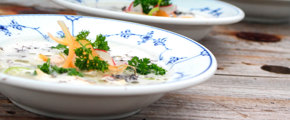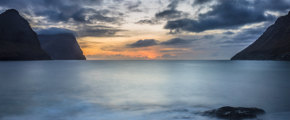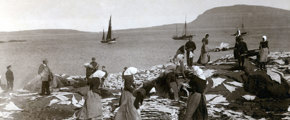Sustainability - Living off the Sea
Few nations in the world are as closely tied to the sea as the Faroe Islands. The waters around the Faroe Islands are rich in marine life. Safeguarding these precious resources is more than a major responsibility – it is an absolute necessity.
Ocean resources are the foundation of the Faroese economy and society. Ensuring that these resources are utilized in a sustainable way and conserving them for future generations is the top priority for Faroese authorities and industry.
The main elements of Faroese legislation on fisheries and aquaculture are fish stock conservation, sustainable harvesting and protection of the marine environment. Using marine resources must be done with respect for the interrelationship between the different animals and plants of the ocean, as well as their abundance and diversity.
In addition to biological sustainability, social sustainability is a significant part of fisheries and aquaculture policy in the Faroe Islands. A principal objective of the policy is that the ocean’s resources should benefit Faroese society and create jobs across the islands.
The Faroese labour market is well organised and regulated after the Nordic welfare model and fishermen and workers are paid in accordance to collective agreements with Faroese unions.
Several of the fisheries behind Faroese seafood exports, as well as several aquaculture areas, have international environmental certification from organizations such as the Marine Stewardship Council (MSC) and the Aquaculture Stewardship Council (ASC).
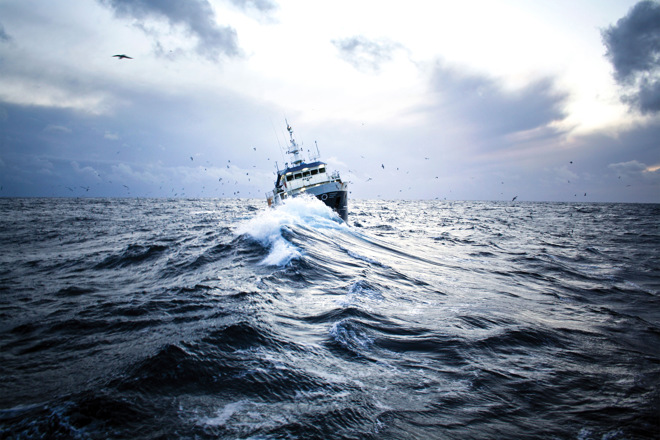
Science-based management
Fish stocks in Faroese waters have been subject to annual scientific research and estimation of abundance since the 1970’s. The results of this work provide a crucial basis for Faroese management of fisheries.
The Faroe Marine Research Institute provides the Faroese government with estimations of fish stocks and recommendations on how to best conserve them and the marine environment and marine ecosystems around the Faroe Islands.
Fisheries in Faroese waters are regulated through a quota and a fishing days system, where quotas and fishing days are allocated by the government on an annual basis.
These quotas are calculated based on biological recommendations and scientific research on the relevant fish stocks. The Faroe Marine Research Institute analyses the research results in co-operation with international experts and the International Council for Exploration of the Sea (ICES), before presenting a recommendation to the government.
Legislation also stipulates that, in order to maintain sustainable use and regulation of fish stocks, quotas have to be calculated in accordance with a long-term management plan for fisheries in Faroese waters.
Alongside quotas and fishing days, there are several other management measures in place to secure the balance between fisheries and the marine ecosystem.
One important management tool is to restrict fishing in certain areas, either for parts of the year or for the entire year. This is done to protect young fish and spawning grounds.
There are also regulations on the size of the meshes in nets, both to protect young fish and limit by-catch. Another measure is to limit the use of certain fishing methods. The scope of trawls, in particular, is limited, as trawls can have a significant impact on coral reefs and the seabed.
The Faroese authorities also promote development and use of environmentally friendly fishing methods.
As a fishery nation with a significant amount of migrating fish stock in its waters, the Faroe Islands work cooperatively with other coastal states in international organisations and through bilateral and multilateral agreements in order to ensure conservation and sustainable fisheries of these highly valuable shared resources in the Northeast Atlantic.
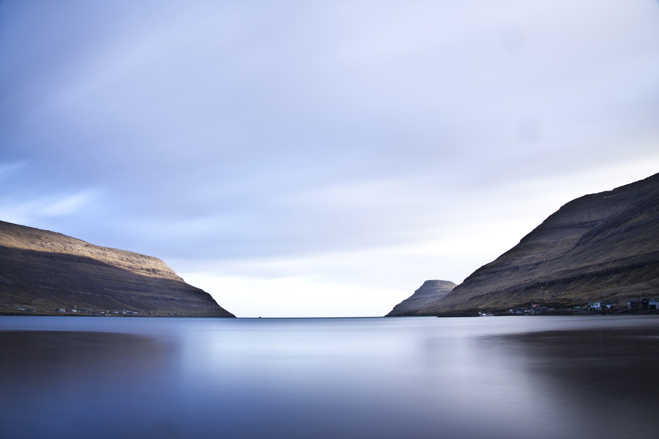
Strictest aquaculture legislation in the world
The Faroe Islands have one of the most stringent and comprehensive legislation on aquaculture, which includes a focus on disease prevention, the welfare of the fish and environmental protection. The Faroese Food and Veterinary Authority supervises Faroese aquaculture.
The strict legislation is crucial to ensuring the welfare and quality of farmed salmon. The results of this can be seen in the fact that Faroese aquaculture has one of the lowest mortality rate in the world. Faroese salmon are farmed without the use of antibiotics.
The number, placement and stocking of aquaculture areas are tightly regulated to ensure sustainability and the health of the fish. Legislation has detailed specifications on maximum fish density in the rings, to give the fish enough room to swim around and thus ensure fish welfare.
A crucial and unique part of the legislation is the “all-in – all-out” strategy, where each aquaculture area is limited to a single generation of salmon at a time. Once the fish is taken, the area has to lie fallow for two months.
The strong and steady currents in Faroese fjords and their clean marine environment provide an ideal basis for the high quality aquaculture of the Faroe Islands. Aquaculture companies are therefore required by law to perform regular checks on the quality of the water and the seabed.

